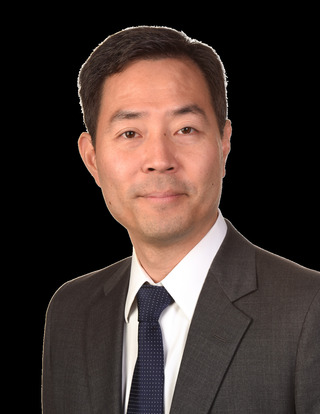Posted on : Jan.5,2018 17:03 KST
Modified on : Jan.5,2018 17:21 KST
 |
|
Frank Aum, Senior Expert on North Korea at the United States Institute of Peace
|
Frank Aum gives a positive appraisal of President Moon Jae-in’s offer for dialogue
 |
|
Frank Aum, Senior Expert on North Korea at the United States Institute of Peace
|
Frank Aum is the Senior Expert on North Korea at the United States Institute of Peace. Prior to that, he was a Visiting Scholar at the U.S.-Korea Institute at Johns Hopkins University's School of Advanced International Studies. From 2010-2017, Mr. Aum served as the senior advisor for North Korea in the Office of the Secretary of Defense. During this time, he advised four Secretaries of Defense on issues related to northeast Asia and the Korean Peninsula. Mr. Aum also served as head of delegation for working level negotiations in Seoul with the Republic of Korea (ROK), and received the Secretary of Defense Medal for Outstanding Public Service.
Aum was interviewed via e-mail by the Hankyoreh on Jan. 2 to discuss North Korean leader Kim Jong-un’s New Year’s address and the prospects of inter-Korean dialogue and a peaceful solution to the nuclear crisis.
Hankyoreh (Hani): How do you assess the Moon Jae-in government's response to the New Year’s address, including the offer of inter-Korean talks next week?
Aum: President Moon and President Trump have already agreed that South Korea will take the lead in inter-Korean matters. Also, the two issues that KJU (North Korean leader Kim Jong-un) raised for discussion (Olympics and inter-Korean military tension) are squarely in the South Korean lane and shouldn’t raise U.S. concerns.
I am encouraged that President Moon has quickly responded with the proposal to begin inter-Korean talks at Panmunjom next week, and a re-establishment of the hotline to discuss specific agenda items. I think we should wait until the talks occur before we start worrying about KJU trying to drive a wedge between the U.S. and South Korea.
Hani: Why do you think North Korea sent the conciliatory gesture toward South Korea at this time?
Aum: North Korea’s overall strategy is unclear but I think the New Year’s speech is traditionally the right venue for outlining policy goals for the year. Every New Year speech for the last several years has included some peaceful overture to South Korea. With the Olympics coming up in February, it makes sense for KJU to make the inter-Korean gesture in the New Year’s speech. Also, there is no other partner for KJU to turn to at this point since the United States doesn’t seem to want to talk to North Korea unless it’s with certain preconditions.
Some people are concerned that North Korea is trying to create a fissure in the U.S.-ROK Alliance by engaging with South Korea and then asking Seoul to ease up on things like military exercises or economic sanctions, which are at the core of the U.S. policy toward North Korea. These concerns are premature and overblown. The U.S.-ROK Alliance is not brittle, it has been robust and resilient for over 60 years. As long as it coordinates well with Washington, Seoul should have the trust and latitude to engage with North Korea and develop a better understanding of North Korea’s intentions and interests.
Hani: What is your overall impression of Kim Jong-un's address?
Aum: The points that stood out for me were: (1) the call to “mass-produce nuclear warheads and ballistic missiles,” (2) the outreach to South Korea for dialogue; and (3) the statement of a “no first-use” policy. KJU appears to be dictating the agenda for South Korea and the United States to respond to.
Hani: Could Kim’s speech help to de-escalate the tension of Korean peninsula upcoming Pyeongchang Olympics?
Aum: I think we need to be guarded about anything North Korea does, but inter-Korean engagement regarding North Korea’s participation in the Pyeongchang Olympics as well as easing inter-Korean military tension is certainly the right first step in lowering tensions on the Korean Peninsula.
Hani: Do you see any signs in Kim’s address that North Korea is willing to begin a dialogue with United States?
Aum: No, and it may partly be due to the fact that Pyongyang knows that Washington is only willing to begin a dialogue on its own terms (i.e., when Pyongyang agrees to certain pre-conditions).
By Yi Yong-in, Washington correspondent
Please direct questions or comments to [english@hani.co.kr]










